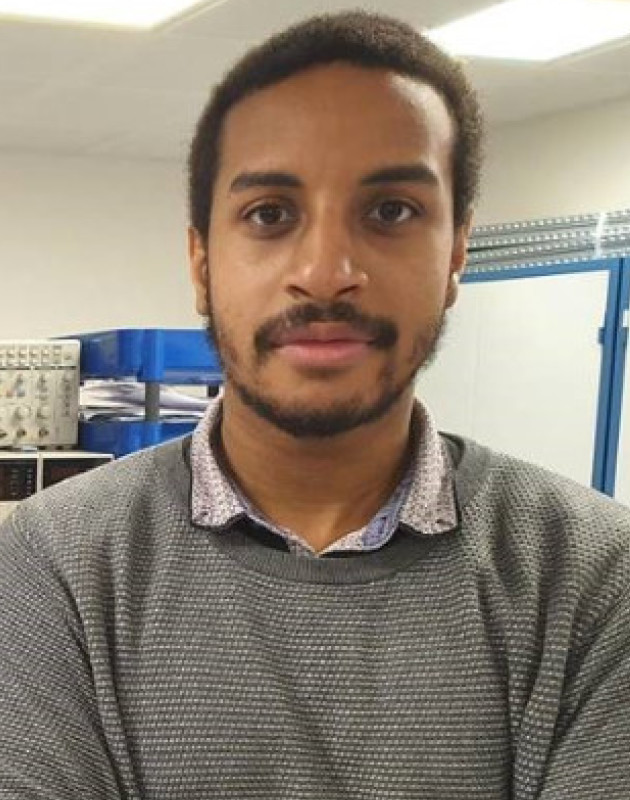
Munir is an Electronics & Mechatronics Engineering Apprentice Technician on our Technician Apprenticeship Scheme
Why did you choose an apprenticeship?
Mechatronics engineering was always something I wanted to get into. Becoming knowledgeable about multiple aspects of engineering to build my own projects and make my own circuit boards were some of the goals I wanted to achieve. The obvious choice was to go to university. But I knew I was an experience-oriented learner and that I would learn the finer details of engineering in a real-world environment. An apprenticeship not only puts you in a real working environment, it also teaches you safe working practices, processes to consider when dealing with the theoretical and practical side of your tasks, and you learn to use various machines, tools and equipment while receiving an income.
Choosing Imperial's Technician Apprenticeship Scheme was a no brainer for me, as it was exactly what I wanted (mechatronics and electronics engineering), with a focus on the electronics side, which I was more comfortable with. As well as working at one of the best universities in the world, I am also able to network with engineers with lots of knowledge and experience, which can help me with my own projects. There are also regular events you can attend. It opens you up to a lot of opportunities, whether you decide to take them or not.
What qualifications have you gained so far on your apprenticeship programme?
So far, I have completed BTEC Level 2 & 3 Diplomas in Operations and Maintenance and Engineering and Advanced Manufacturing Engineering. Currently, I am working towards a Level 4 BTEC HNC in Engineering (Electrical and Electronic Engineering).
What skills have you gained?
The skills I have developed range from using a manual lathe, a manual milling machine, troubleshooting circuits, dealing with SMD components, wire bonding silicon wafers, troubleshooting codes to find faults and errors, to even using CAD software for making parts and to designing a circuit board from scratch. I have improved my communications skills considerably, as I have learned to communicate effectively with those around me in the workplace, learning what to specify when asking for information and being able to manage my workload, even when the jobs pile up.
What advice would you give to someone considering this route?
I would start by finding out what you enjoy doing – then find out what type of engineering category this connects to (whether that’s mechanical, electronics, or software engineering, etc.). Ensure that the skills you want to learn, and the experience you want to gain, are covered by the apprenticeship scheme. Once you are in your apprentice role, I would advise you to revive projects that you left behind in the past because you did not know enough to progress them! You will receive some support for this and, when you complete the project, it will give you confidence when dealing with other tasks or projects. Finally, I would recommend connecting with other people by going to events and talks; this will set you up nicely for future ventures or even lead you to new projects that you become passionate about.
Academic Technology Approval Scheme (ATAS)
With effect from 21 May 2021, any individual who will be undertaking research activities, at PhD level or above, in one of the Academic Subjects/Fields of Research relevant to ATAS will be required to obtain a free of charge ATAS certificate before they can apply for a visa to work in the UK. This will include research, academic, engineering and technician staff applying for Skilled Worker visas. Some exemptions apply.
Find out more about about the ATAS scheme